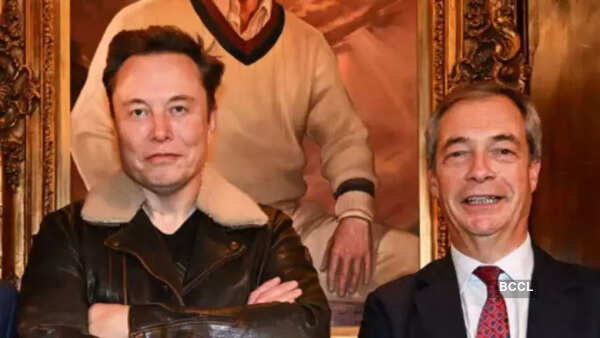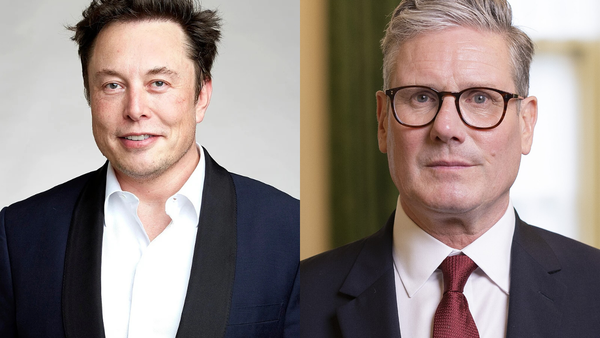After years of public outcry, multiple local reviews, and political hesitation, the UK government has announced a full national statutory inquiry into grooming gangs and institutional failures that enabled decades of child sexual exploitation.The decision, announced by Prime Minister Keir Starmer on June 14, marks a dramatic shift in tone for his administration—one that had previously resisted demands for a public investigation into what many see as one of Britain’s worst safeguarding scandals.The tipping point? A perfect storm of political pressure, survivor testimony, community backlash—and unusually, a global spotlight powered by Elon Musk, who used his platform, X (formerly Twitter), to repeatedly target Starmer’s record on grooming gangs.
The Case That Refused to Disappear

Elon Musk and Nigel Farage
The term “grooming gangs” refers to loosely organised groups of men who exploited underage girls—typically white, working-class, and often in care—in towns across northern England from the early 1990s onwards.The 2014 Jay Report on Rotherham, commissioned after investigative journalism exposed widespread abuse, identified over 1,400 victims between 1997 and 2013. Similar patterns were later uncovered in Rochdale, Telford, Oxford, and Oldham.What made the cases especially sensitive was the ethnic background of many offenders—in several high-profile cases, the perpetrators were men of Pakistani Muslim heritage. However, the official framing used the broader term “Asian grooming gangs”—a euphemism that triggered resentment among British Indians, Sikhs, and East Asians who said their communities were being unfairly implicated.
“We Are Not the Perpetrators”: British-Indians Push Back
British-Indian communities, especially Hindus and Sikhs, have long objected to the blanket use of the term “Asian grooming gangs.” Their frustration boiled over in January this year when Starmer, in response to criticism from Elon Musk, once again used the phrase during a televised interview.Community leaders issued sharp statements denouncing what they called an ethnic smear. “Why should we be classified as part of these gangs?” asked Jay Shah, spokesperson for Friends of India Society International UK. “Asian means Vietnamese, Sri Lankan, Japanese, Indian, etc. When it comes to grooming gangs, we are Asian. When it comes to Kashmir, we are Indian.”The Hindu Council UK called Starmer’s wording a “whitewash of heinous atrocities,” noting that Hindu and Sikh girls had also been among the victims. Sikh Youth UK, which has documented grooming cases involving Sikh victims for over 15 years, said it had worked with thousands of families and even caught perpetrators outside Sikh schools. The Network of Sikh Organisations described Starmer’s comments as “extremely disappointing” and accused politicians of “protecting perpetrators rather than victims.”Both the Hindu Council UK and INSIGHT UK have since backed Conservative calls for a national inquiry—arguing that political correctness has too often silenced honest debate about ethnicity and crime.
From Tech CEO to Relentless Critic
The turning point came not from Westminster but from Silicon Valley.In early 2025, Elon Musk—whose X platform has grown into a global political amplifier—began posting repeatedly about grooming gangs. Quoting survivor testimonies, reposting historical reporting, and tagging British officials, Musk accused UK authorities of “turning a blind eye to organised rape” and suggested that political leaders, including Starmer, were “cowards unwilling to confront the truth.”One post from March read: “If these were elite London girls being trafficked, the BBC would talk about nothing else. But poor northern girls? The state looked away.” While the tone of Musk’s commentary sparked debate—especially among British politicians who viewed it as inflammatory—it undeniably brought renewed international attention to the issue.By May, Musk’s X account had posted or amplified over 150 messages about grooming gangs, triggering renewed media coverage, a spike in search interest, and thousands of public responses. Hashtags such as #JusticeForRotherham, #GroomingGangsInquiry, and #StarmerFailedUs trended across the UK and US.
Political Pressure Closes In

The growing visibility added fuel to a debate already brewing in Parliament.In January, Home Secretary Yvette Cooper had quietly commissioned Baroness Louise Casey to conduct a “rapid review” into previous investigations—including Oldham and Rochdale—after persistent claims that public officials downplayed or ignored evidence of abuse.Casey’s report, delivered in May, was damning. It found that multiple public bodies “failed in their duty of care” and that in some cases, victims were dismissed or even blamed. Crucially, it called for a full statutory public inquiry with the ability to compel testimony and evidence.Simultaneously, Conservative MPs, Reform UK leaders, and victim advocacy groups demanded action. Former Home Secretary Suella Braverman, a long-time critic of the “Asian gangs” terminology, stated that Starmer had “run out of excuses.” Reform UK leader Nigel Farage called the lack of a national inquiry “a betrayal of Britain’s daughters.”
Starmer Responds
On June 14, Keir Starmer announced the establishment of a judge-led inquiry under the 2005 Inquiries Act, which gives it full legal powers. He said the investigation would “examine past failures, hold institutions to account, and ensure this can never happen again.”Starmer, who previously served as Director of Public Prosecutions, defended his record, pointing to a rise in grooming-related prosecutions during his tenure. But critics argue that his earlier reluctance to endorse a national inquiry allowed the issue to fester—and exposed Labour to accusations of institutional denial.“There is no more denying the scale of failure,” Starmer said at a press conference. “This inquiry is about justice—for survivors, for their families, and for the country.”
Why a Statutory Inquiry Matters
Unlike previous reviews—many of which lacked transparency and enforcement—this inquiry has legal teeth. It can:
- Subpoena witnesses, including former officials, police officers, and social workers;
- Demand the release of classified documents and internal reports;
- Take testimony from survivors in private or public;
- Recommend structural reforms for law enforcement, social services, and public communication.
- For many survivors, this is the first time they feel their voices might lead to actual accountability.
What Happens Next
The inquiry will take several months to set up, with hearings likely to begin in early 2026. Its findings could reshape the way Britain handles child protection, race relations, and public accountability. But in the short term, it’s already had an impact:
- Musk’s involvement, while controversial, showed how digital platforms can force action on long-ignored issues.
- Starmer’s government is now under pressure to implement swift reforms and offer compensation to survivors.
- The political debate has sharpened, with opposition parties vowing to make grooming gangs a central issue in the next election.
Final Word
This is not just a story of abuse—it’s a story of institutional failure, political caution, and the new ways power is exercised across borders and platforms. Whether the inquiry delivers justice remains to be seen. But for the thousands of girls whose pain was ignored—and for the communities wrongly smeared along the way—this is a reckoning long overdue.